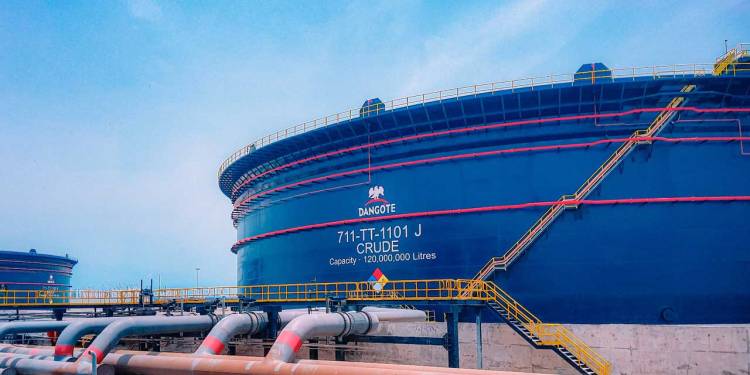International Oil Companies (IOCs) operating in Nigeria continue to bypass direct crude oil supply to local refineries, even as the country faces a staggering 60 million barrels of unsold crude floating at sea. This practice, experts say, undermines Nigeria’s efforts to boost domestic refining and maximize oil revenue.
Investigations by LEADERSHIP reveal that, despite clear mandates in the Petroleum Industry Act (PIA), IOCs are still prioritizing sales to foreign traders over supplying Nigerian refineries. This not only violates national law but has also led to significant economic losses, with refineries forced to buy back Nigerian crude at inflated prices from international markets.


Violations of the Petroleum Industry Act
Sections 8(c) and 109 of the PIA require oil producers to meet Domestic Crude Supply Obligations (DCSO), ensuring that local refineries have access to the crude needed for production. However, documents show that IOCs are selling to foreign buyers—primarily in the Far East, Southern Africa, and the Mediterranean—who then resell the crude to Nigerian refiners at premiums of $5–$6 per barrel above global rates.
“This pricing strategy effectively locks out local refiners,” said public affairs analyst Bimbo Oyarinu. “IOCs are actively undermining Nigeria’s refining ambitions to protect foreign interests.”
Regulatory Inaction and Consequences
The Nigerian Upstream Petroleum Regulatory Commission (NUPRC), tasked with enforcing the PIA, has faced criticism for its lack of decisive action. While the Commission has issued warnings, enforcement remains weak.
In a February 2, 2025 letter, NUPRC CEO Gbenga Komolafe warned oil companies against exporting crude designated for domestic use, stating that future export permits for such cargoes would be denied. Despite this, industry insiders say the violations continue unchecked.
“There’s no meaningful consequence for non-compliance,” said one senior analyst. “Refiners are bidding for crude, but they’re ignored. Meanwhile, cargoes are exported and brought back at a higher cost. It’s exploitation, plain and simple.”


Refineries Starved of Crude
Nigeria has seen renewed investment in refining, including the multi-billion-dollar Dangote Petroleum Refinery and several modular plants. However, many of these facilities struggle to access local crude. Some, like the Edo Refinery, are now seeking supply from U.S.-based producers.
“The biggest challenge is getting crude,” said Eche Idoko, spokesperson for the Crude Oil Refinery-owners Association of Nigeria (CORAN). “Seven refineries have stalled due to feedstock shortages.”
Only a few refineries, such as Walter Smith and Aradel Energy, which operate with their own marginal fields, are able to refine intermittently. Others haven’t processed any crude in six to eight months.
In a troubling twist, Nigerian refineries are now importing crude to keep running. According to The Punch, Dangote and other modular plants could spend up to $8.56 billion over the next six months to import around 122.4 million barrels—an estimated $1.43 billion monthly burden for a nation rich in oil reserves.

A Call for Urgent Reform
Industry experts are calling for immediate government intervention to reverse this trend. “It’s a paradox,” said Oyarinu. “We sit on one of the largest oil reserves in Africa, yet we pay billions to import our own crude.”
Energy analyst Dan Kunle added that global oil price fluctuations have also contributed to the crisis. Many vessels are now idle at sea due to pricing disputes, which incur mounting charter costs while the cargo remains unsold.
“This is a lose-lose situation,” Kunle noted. “Instead of leaving crude stranded, we should channel it to domestic refineries. With proper coordination, this realignment shouldn’t take more than a month.”
As Nigeria battles inflation, foreign exchange shortages, and sluggish growth, stakeholders insist that the country must shift from rhetoric to action. The stranded crude floating offshore, they argue, could power the domestic economy—if only the political will existed to make it happen.




